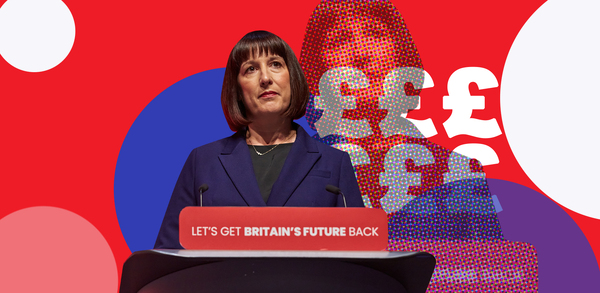Dear CFOs – when it comes to sustainability, we need the best of you
Finance ministers are focusing on finance to accelerate climate action at COP29 – every food business will need to be ready to take on the challenge, says Carolyn Ball
Today is Finance Day at the global climate summit, COP29. Finance ministers are focusing on the good practices and challenges of mobilising finance to accelerate climate action and on advancing understanding in the economic community. Irrespective of the outcomes, every food business will need its chief financial officer (CFO) at their very best. Are you ready?
What we need
Consider the food industry’s connection to climate change, environmental degradation, and chronic ill-health and three needs stand out. Each will come to impact the profitability of your business.
1. Nationally Determined Contributions (NDCs)
These are plans with actions by each country to reduce national emissions and adapt to the growing impacts of climate change. They need financial provision. Price tags are coming.
2. P&L constructs that value societal and nature-based impacts
These are a must to ensure climate plans, and the actions within them, are well-informed and commercially credible. How well a business can respond to these impacts will become the very basis of its bread and butter.
3. Forward-thinking and gutsy CFOs
Are those who understand that getting organised today is their greatest competitive advantage tomorrow. This requires real courage but will be work their families and future selves are most proud of.
What you can do as a CFO?
1. Prepare for incoming price tags. Start learning how, now.
Multibillion-pound price tags have been identified to reflect the biodiversity finance gap, growing dietary-related public health pressures and the urgent need to decarbonise. The magnitude here is more important than the specifics of the number as it signals a clear direction of travel.
If you’re operating in the food private sector, you’ll know that while these price tags are not yet costed, this won’t be the case forever. We need only look at the climate-induced tragedies on the news to recognise that prioritising a narrow idea of profitability at the growing expense of societal welfare will not continue to be tolerated. Today’s “free pass” will expire. It’s time to get organised.
2. Walk an informed walk. Use data to build resilience.
Your business needs to be as aware of the indirect social and environmental impacts your activities carry, as it is about your traditional financial accounting.
This is because customer and regulatory pressure will continue to increase, accelerating the importance of balancing your economic, social, and environmental wealth. Companies with an established framework and robust data to provide an integrated view of this performance will be at an advantage.
With a deeper evidence base you can make better investment decisions, reduce risk and bolster resilience.
3. Know that the right thing today is how you’ll win tomorrow.
The salience of environmental issues goes up and down. But the facts on the ground mean it will increasingly become front of mind for the public and our policymakers. Your customers and investors either see this now or will be forced to see it tomorrow.
Either way, actionable climate leadership will prove to be every business’ greatest growth enabler as the world wakes up to the power with which it is already shaping our businesses, the systems we rely on to trade, and the talent we need to succeed.
Give people the opportunity to turn a tanker or stay on a sinking ship and it’s clear which one they’ll choose.
What we’ve done at Compass UK&I
We understand that organisations of our size and capability have a responsibility to make use of every resource available to us, the current technologies, and the standards that exist now to show how change can happen faster than it has to date. Facing this has led us to act and we continue to learn through doing.
Here are three examples:
1. Positioned sustainability as material to the delivery of Compass’s commercial objectives.
Once a single role, then a siloed support function, sustainability is now operationally embedded into every sector and reports directly to our CFO.
2. Invested in strategic partnerships to improve our data capability.
In FY23 we collaborated in the largest food and drink carbon impact assessment undertaken to date: 2,192,317 rows of data were analysed, 1,764,739 of which accounted for food and beverage and included 31,315 unique items.
3. Growing competitive advantage with conviction and courage.
We believe ours is an industry to be proud of. It was asked to feed a growing world and responded. It has done great things, and it will do them again. We just need to make sure we do them differently – by winning and extending partnerships with those who feel the same.
As CFO you are uniquely placed to lead this reinvention as the economy is forced to undergo its greatest transformation in living memory.
It will require the very best of you. Thank you for being brave enough to embrace it.
More information is available in Compass’s UK&I transition plan – a first iteration reflecting the combined expertise of its multi-disciplinary team.
Carolyn Ball is the director for delivery of net zero at Compass Group UK & Ireland






















